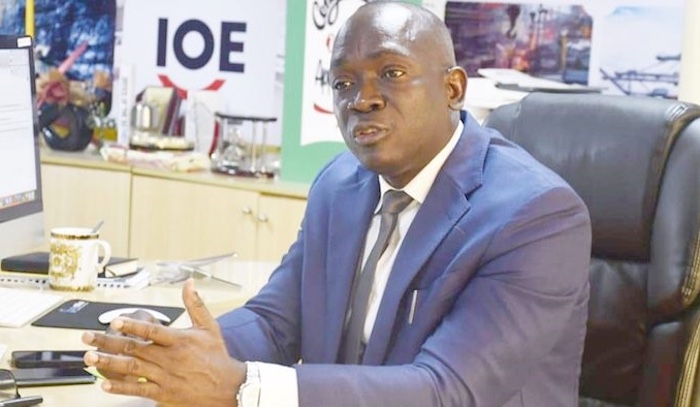Business
NECA Applauds 15% Fuel Tariff as Catalyst for Local Refining

The Nigeria Employers’ Consultative Association (NECA) has expressed strong support for the federal government’s recent decision to impose a 15% tariff on imports of certain petroleum products. This move aims to protect and stimulate local refining and is seen as crucial for the country’s economic recovery.
In a press statement issued on Sunday in Abuja, NECA’s Director-General, Mr. Adewale-Smatt Oyerinde, stated that it is “absurd for a country blessed with crude oil to spend so many years importing petrol and diesel.” He attributed the underperformance of Nigeria’s four government refineries in part to the ongoing reliance on imported fuels that these facilities are capable of producing.
Oyerinde emphasized that “the imposition of the tariff on imported fuel is not only timely but essential.” He believes this policy represents a significant step towards promoting local value addition, enhancing domestic refining capabilities, conserving foreign exchange, and advancing Nigeria’s industrialization efforts.
The Director-General further highlighted that to expedite economic growth, the government must show commitment to local production. He noted, “If implemented effectively, this policy will accelerate Nigeria’s challenging journey toward energy sufficiency and economic development.” He asserted that the tariff would alleviate pressure on the Naira, allowing foreign exchange resources to be redirected toward other critical needs.
Oyerinde also pointed out that the initiative would reassure local manufacturers and investors in the oil and gas sector of the government’s dedication to supporting their investments. He declared, “This policy should protect them and ensure the sector’s sustained development.”
While praising the initiative, Oyerinde cautioned that the government must take necessary actions to prevent any potential negative consequences from the policy. “The government must establish all necessary parameters and manage the dynamics of the policy to prevent price distortions and other issues,” he stated.
He stressed the importance of resolving the complexities surrounding the Naira-for-crude arrangement to ensure a reliable supply of crude oil to local refiners. Addressing these and related challenges promptly is vital to prevent the new tariff from becoming counterproductive.
Oyerinde concluded that any policy aimed at promoting local refining and ensuring regular supplies at the lowest possible price should not impose an undue burden on Nigerian citizens. He emphasized that prioritizing the production of goods across all sectors, not just oil and gas, is essential for revitalizing the real economy in both the medium and long term.
-

 Health3 months ago
Health3 months agoNeurologist Warns Excessive Use of Supplements Can Harm Brain
-

 Health3 months ago
Health3 months agoFiona Phillips’ Husband Shares Heartfelt Update on Her Alzheimer’s Journey
-

 Science2 months ago
Science2 months agoBrian Cox Addresses Claims of Alien Probe in 3I/ATLAS Discovery
-

 Science2 months ago
Science2 months agoNASA Investigates Unusual Comet 3I/ATLAS; New Findings Emerge
-

 Science1 month ago
Science1 month agoScientists Examine 3I/ATLAS: Alien Artifact or Cosmic Oddity?
-

 Entertainment5 months ago
Entertainment5 months agoKerry Katona Discusses Future Baby Plans and Brian McFadden’s Wedding
-

 Science1 month ago
Science1 month agoNASA Investigates Speedy Object 3I/ATLAS, Sparking Speculation
-

 Entertainment4 months ago
Entertainment4 months agoEmmerdale Faces Tension as Dylan and April’s Lives Hang in the Balance
-

 World3 months ago
World3 months agoCole Palmer’s Cryptic Message to Kobbie Mainoo Following Loan Talks
-

 Science1 month ago
Science1 month agoNASA Scientists Explore Origins of 3I/ATLAS, a Fast-Moving Visitor
-

 Entertainment2 months ago
Entertainment2 months agoLewis Cope Addresses Accusations of Dance Training Advantage
-

 Entertainment3 months ago
Entertainment3 months agoMajor Cast Changes at Coronation Street: Exits and Returns in 2025









